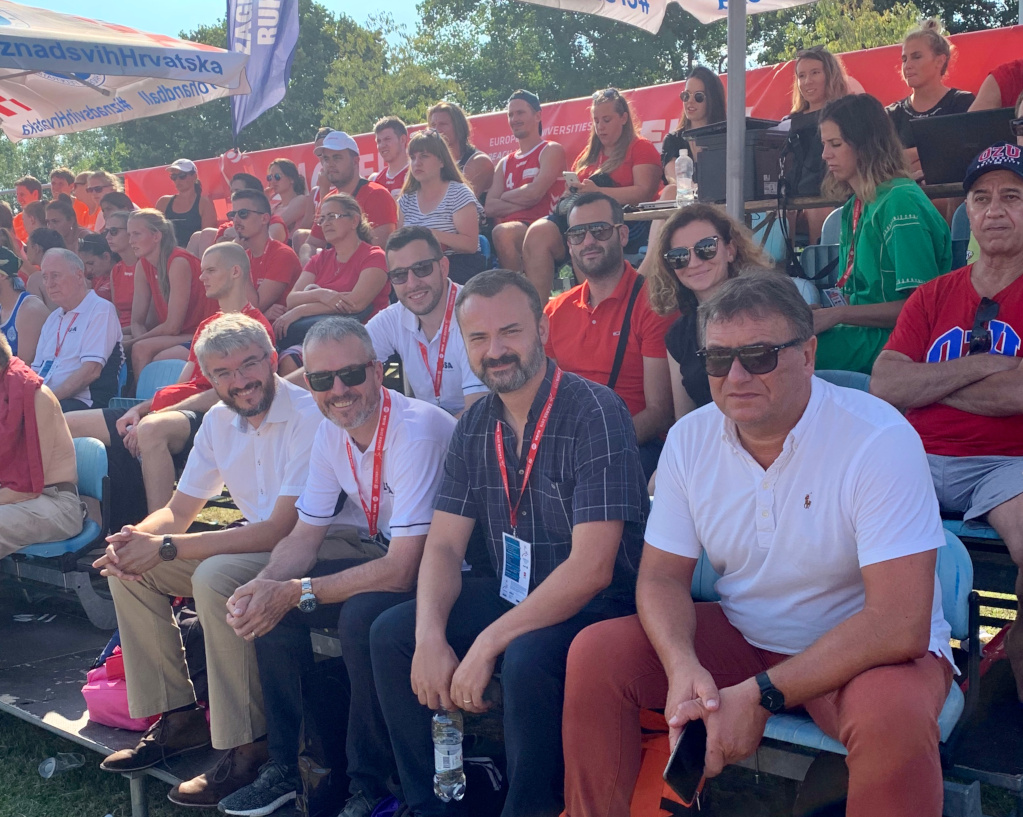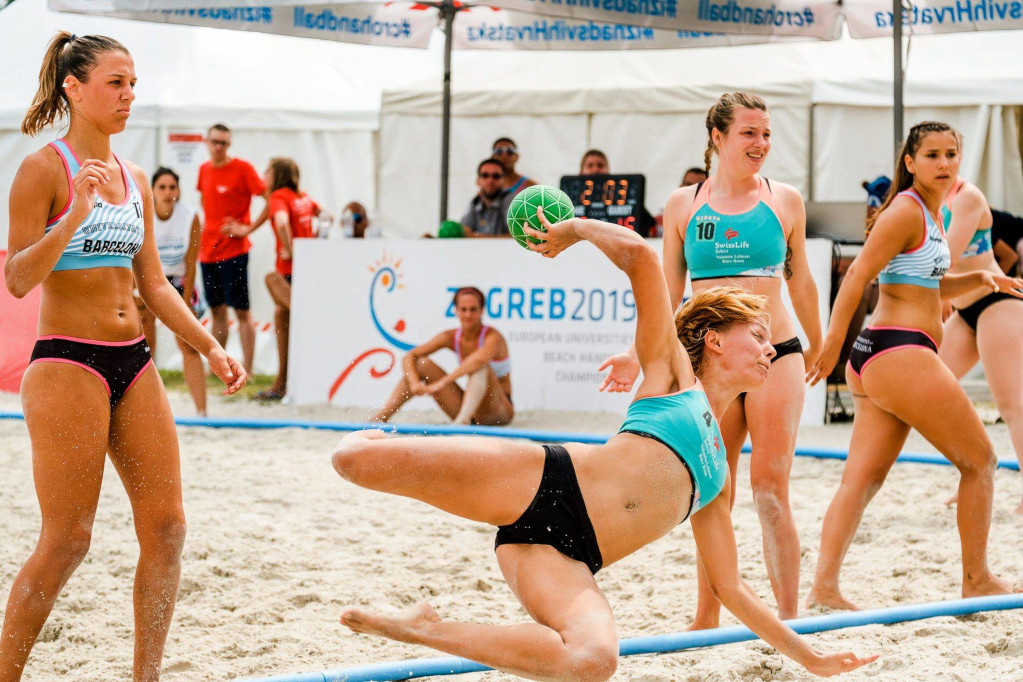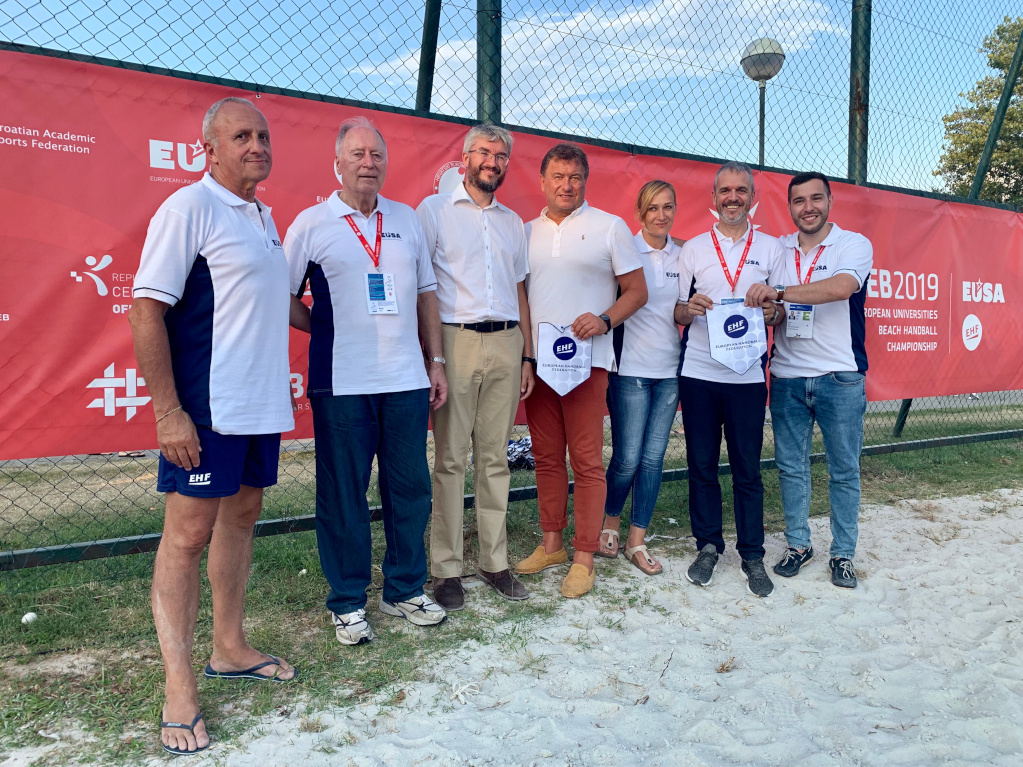Bright future for university Beach Handball

The very first European Universities Beach Handball Championship was a resounding success according to the European Handball Federation (EHF), who predicts a bright future for this sport at university level.
Organised in association with EHF – a partner organisation of EUSA – the very first EHF-EUSA Beach Handball Championship took place in Croatia’s capital Zagreb between July 24-27, which saw 150 participants representing 16 Universities from eight countries taking part over three action-packed, fun-filled days of competition, all played in great spirits.
EHF’s Beach Handball Commission Chairman Mr Ole Jorstad was present at the event, and met with EUSA Secretary General Mr Matjaz Pecovnik and EUSA Sports Manager Mr Besim Aliti while enjoying the action on the courts near Jarun Lake.
Spain’s University of Barcelona emerged victorious in the women’s competition after their 2-1 victory over University of Novi Sad from Serbia in the final, while home favourites University of Zagreb claimed the gold medal after beating University of Belgrade in the men’s final.
Following the culmination of the successful first European Universities Beach Handball Championship, Mr Jorstad took the time to speak with EUSA to reflect on the competition while also looking ahead to the future.
EUSA: Zagreb has just hosted the very first edition of the EHF-EUSA European Universities Beach Handball Championships. What were your experiences from this event?
Mr Jorstad: This was the premiere event – and 16 teams participated straight away. That was the most important, and in that respect the EHF-EUSA European Universities Beach Handball Championships have really been off to a good start.
How did you find the level of competition played among the student-athletes?
Quite naturally, the performances produced by the participating teams varied. Nevertheless, we saw some great action and a lot of interesting beach handball matches. 
How import is the EHF’s partnership with EUSA for the growth of the game among university students?
The partnership with EUSA is very important to the EHF and for Beach Handball in particular. We are aiming to intensify our cooperation with universities in Europe to introduce Beach Handball to their curriculum. EUSA is a perfect partner in this process, and the championship was a good start for this project.
Beach handball is becoming more and more popular. What do you believe makes this version of handball so attractive?
It’s a fast, exciting and also physically challenging sport which never falls short of spectacular action. At the same time, we are combining sport with entertainment and a ‘beach lifestyle’. It is this package that makes the sport so attractive for everyone involved: players, fans and also for potential sponsors. This overall attractiveness is also key for us to make young players and future generations pick up the sport.
What does the future look like for beach handball?
Bright. The final step to push it to the next level would be the inclusion in the Olympic programme by 2024. Together with the International Handball Federation we are working to achieve this goal.
European university students can look forward to Beach Handball featuring for the first time at the 2020 European Universities Games in Belgrade, Serbia next year, following which the 2021 European Universities Beach Handball Championship, which will be combined with the Beach Volleyball event, will take place in Malaga, Spain the following year.
